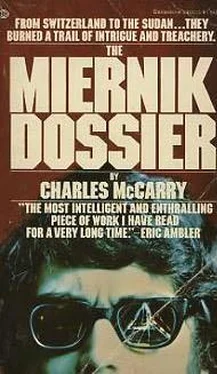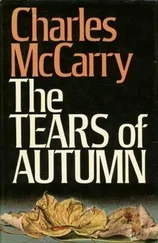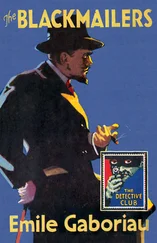“Really, Tad,” Brochard said. “Inge was hardly born when all that was going on.”
“I was thirteen when the war ended,” Inge said.
“Old enough,” Miernik cried. He pulled another bottle of vodka from the rattling ice and began filling glasses. Water poured off the end of the bottle, wetting everyone’s clothes. Inge pulled her glass aside, and the vodka splashed on the floor beside her.
“I was old enough to be thrown on the ground and raped by a company of Russian soldiers,” she said. “They are heroes, I suppose. Was Ilona raped by a German soldier? Did the Germans rape your mother, your sisters?”
“The Germans raped no one. That is an act of life.”
“Try it at thirteen,” Inge said. “Your act of life! I say shit right back at you.”
“Yes, an act of life. An act of spontaneous human beings. Brutal, yes. But human, Inge.”
“Wild beasts,” Inge said. There was no danger of her crying now. She was a victim, too.
“Better a beast than a machine,” Miernik said. “I will tell you the difference between the Russian Army and the German Army, since you are too young to remember.”
“Inge seems to remember, all right,” Ilona said. “Tad, we’re all a little drunk.”
Miernik remained standing, the bottle in one hand, the vodka glass in the other. He poured himself three quick drinks, throwing his head back to swallow. His hair fell over his forehead.
“The German Army was a machine,” he said. “A machine, Inge, a gray machine clanking through mankind. It smelled of steel and petrol. The Germans sat on the machines, like machines themselves. Gray, smelling of the machine shop.”
“I know what the Russians smelled like,” Inge said.
Miernik, holding Inge’s eyes, went around again with his bottle. He poured the vodka into glasses that were already full; it slopped over. He drank out of the bottle.
“The Russian Army,” he said. He fell into his chair with his legs spread and closed his eyes. “The Russian Army was like the earth. To see it coming was like seeing the earth move, a great mob of men in brown. It was an avalanche. It buried your Germans. The German Army, to me, is the burnt trucks and tanks in the Polish countryside.”
“Tell me how beautifully the Russians sang,” Inge said. “You people always tell that.”
“The fighting went right by our house,” Miernik said. “I went out when it was over, I wanted to give the Russians something. It was snowing. I found a Russian soldier sitting on a pile of rubble. He was eating bread. He had only this piece of bread. He saw me, a boy, and he gave me half the bread. We didn’t say a word, we sat there chewing the bread. Black Russian bread. He kept smiling at me. Finally he said, ‘I must go. Comrade Stalin has asked us to keep right on to Berlin.’ And he picked up his rifle and went.”
“And the commissars and the secret police came after him,” Inge said. “They haven’t picked up their rifles and gone away, have they?”
Miernik opened his eyes. “No,” he said. “Those people are still there.”
“I should think that you’d want to be with them, those wonderful human beings,” Inge said. “You could be a part of the earth, too.”
Miernik stared at her. There was no expression in his face at all. He took off his glasses and threw them against the wall. The lenses broke.
“I am going to dance,” Miernik said.
He staggered over to the phonograph and started it. Still wearing his coat and vest, dark stains of vodka on his buttoned chest, he began to dance. The room shook, he laughed. He pulled Ilona off the floor. Her black hair swung like a curtain. He placed her on his shoulder and began to spin. She straightened her legs and shrieked like a child on a carnival ride; she put her cheek on top of his head and her hair tangled around both their faces. Miernik was shouting in Polish, his voice loud at first, then blown out by laughter and loss of breath. He fell with Ilona on top of him. She lay there for a moment, then kissed him on the forehead and got up. She stood over him with her legs apart, smiling down on him.
Miernik lay on the floor. He still had no breath. In a moment he gathered enough to shout, “Ilona Ivanovna, I forgive you!”
He sucked in more breath and cried, pointing his finger at each of us in turn, “Léon Léonovich, I forgive you! Hassan Hassanevich, I forgive you! Paul Alexandrevich, I forgive you! Nigel Andreevich, I forgive you!”
Miernik staggered to his feet and lifted Inge off the sofa. She tried to pull away. He lifted her by the waist so that her face was in front of his own. “Even you, Inge-what was your father’s name?”
“Peter.”
“Inge Pyotrovna, I forgive you!”
The doorbell rang. “That must be Kalash,” Miernik said. “I will go and forgive him.”
He opened the door to a Swiss policeman. “We have a complaint,” the policeman said. “There is too much noise.”
Miernik would have embraced the policeman, but Brochard stepped between them. “The noise will stop at once,” Brochard said.
“Papers,” the policeman said.
Brochard reached for his pocket. “Not yours. His,” the policeman said.
“This gentleman is a functionary of WRO,” Brochard said. “He has a diplomatic identity card.”
Miernik reached over Brochard’s shoulder and gave the card to the policeman. The policeman wrote in his book and gave it back.
“There will be a formal complaint unless the noise stops,” he said. “I advise you to put this man to bed.”
“Je vous pardonne,” Miernik said.
Brochard went into the hall with the policeman and shut the door. Miernik sat down on the floor. His head sagged. He leaped to his feet and flung open the door. Brochard and the policeman were walking up and down the hallway, deep in conversation. The smile on the policeman’s face went out at the sight of Miernik.
“Do you speak German?” Miernik said to the policeman. The cop stared at him. Brochard let go of the policeman’s elbow and threw up his hands.
“Of course you do,” Miernik said, in German. “You smell like a German. Like gasoline. Gasoline burns. Remember that, you damned machine.”
“You will come with me,” said the policeman.
“I have diplomatic immunity,” Miernik said.
“You cannot insult the Swiss police.”
“I have just done so. I don’t like the color of your uniform.”
Collins and I pulled him back into the room. He struggled with us. Ilona put her palm on his cheek. “Tad,” she said, “come and sit with me.” He followed her to the sofa.
Inge was putting on her coat. “He’s cracked my ribs,” she said. “He’s a bloody Mongolian.”
We went into the hall to talk to the policeman. He asked for all our papers and wrote our names in his book. “You are witnesses,” he said. “I have no more to say at this time.” He went down the stairs.
Collins watched him go. “I don’t think that the copper is going to forgive Tadeusz Jerzyvich,” he said.
Inge came out the door. She gave Brochard a look, and he followed her out. “There’s nothing to do,” he said.
“Mongolian,” Inge said.
Inside, Miernik lay on the sofa with his head in Ilona’s lap. “He’s asleep,” she said.
“Fifteen minutes too late,” Collins said. He beckoned Ilona away from the sofa. She smoothed back Miernik’s hair and stood up.
They all left. I took off Miernik’s shoes and tried to loosen his tie. He opened his eyes.
“Would you agree that I’ve been a fool?” he said. “You were carried away by vodka. We all forgive you. (This business of “I forgive you” is an in-joke at the expense of the Russians. Miernik imitates them: “I had to shoot your mother, Ivan!” “I forgive you, Igor!”)
Читать дальше












